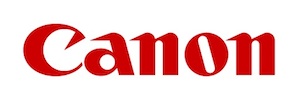Cary Sherburne: Hi, I'm Cary Sherburne, Senior Editor at What They Think and I'm here with Marco Boer from IT Strategies. You know we all hear this print is dead, print is a mature industry, print is consolidating the number of establishments. We all hear this doom and gloom stuff going on, but it just seems to me that I like to call it the vibrant underbelly that there is a lot of innovation happening in the industry, maybe more than we've seen since Guttenberg. I don't know. What do you think?
Marco Boer: I think we're at a stage now like the car industry. In the early 1900's you had all these car manufacturers. Then they all consolidated and we're at a stage now where you see all these new car manufacturers come out of nowhere, Tesla, etcetera. Same thing in the print industry, so we went from having just a handful of really big companies, Ricoh and 3M and they all sort of merged and then over time now we've reached a stage where we're seeing an explosion in companies.
We track about 270 inkjet manufacturing companies around the world. And you say 270, how is that possible, right? Well one of the things that enables that is that the technology at its core like in the car industry you have these battery packs. In our business we have inkjet heads and so these inkjet heads are becoming like Lego pieces. If you buy the inkjet head you can basically develop your own system and so you've got companies out of China like Beijing Founder that are making transaction printers or book printers rather. You've got companies in Greece that are making t-shirt printers. You've got companies in Turkey, Yugoslavia and in fact, one of the things that really strikes me is that the dispersion if you will, the distribution of companies that make these inkjet technologies are almost evenly disbursed around the world. It's not a European only market thing or a US only or Japan or Israel. They are actually very evenly dispersed.
Cary Sherburne: Are they all north of the equator?
Marco Boer: Most of them, yes.
Cary Sherburne: So it's kind of an interesting question, but.
Marco Boer: There is not a lot in the Dominican Republic that I know of.
Cary Sherburne: Well no, but I was thinking more Brazil you know as one of the leading economies in Latin America and certainly they're buying the technologies, but from a manufacturing perspective you're not really seeing-
Marco Boer: Not yet and I think Brazil is actually the world's sixth largest economy. They are bigger than Italy, but what people forget is they're still a relatively poor economy. The GDP is really low, so the level of innovation is occurring in pockets and it will happen over time, but the point is that we think we're in this industry that's really consolidating and all you have left is HP, Xerox, Ricoh and a handful of other companies, but it's not true. There is more innovation happening than ever before and that's exciting.
Cary Sherburne: That is exciting and I guess people that are out looking to buy technology, the printers, the print service providers, the converters and packaging, whatever they should be broadening their horizons a little maybe.
Marco Boer: Right. There is more choice than ever. The barrier, really why these 270 companies aren't scaling effectively is the cost of distribution and service. They're undercapitalized, so they can make beautiful technology, but if I can't get it to you a thousand miles away and I can't service it I'm out of luck.
Cary Sherburne: Right, that is a problem. Well that's exciting. We'll have to keep a close eye on all of that.
Marco Boer: Great.
Cary Sherburne: Thank you.
Marco Boer: Thank you.

 Official camera partner of WhatTheyThink and the drupa daily.
Official camera partner of WhatTheyThink and the drupa daily. 












